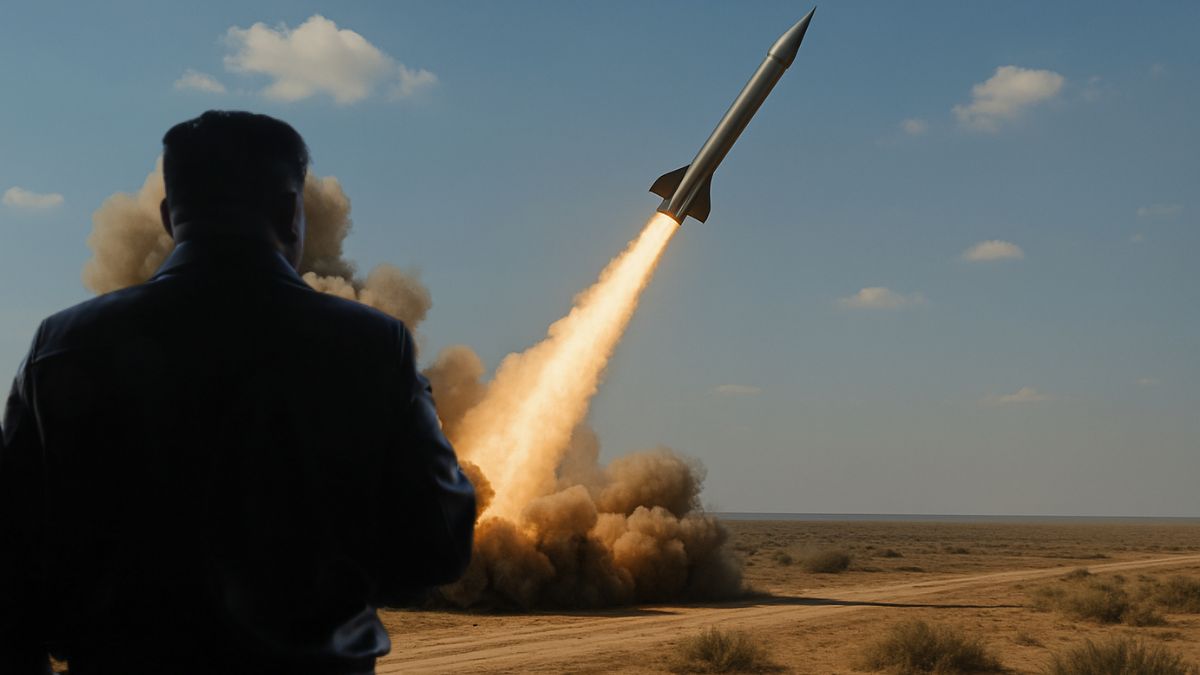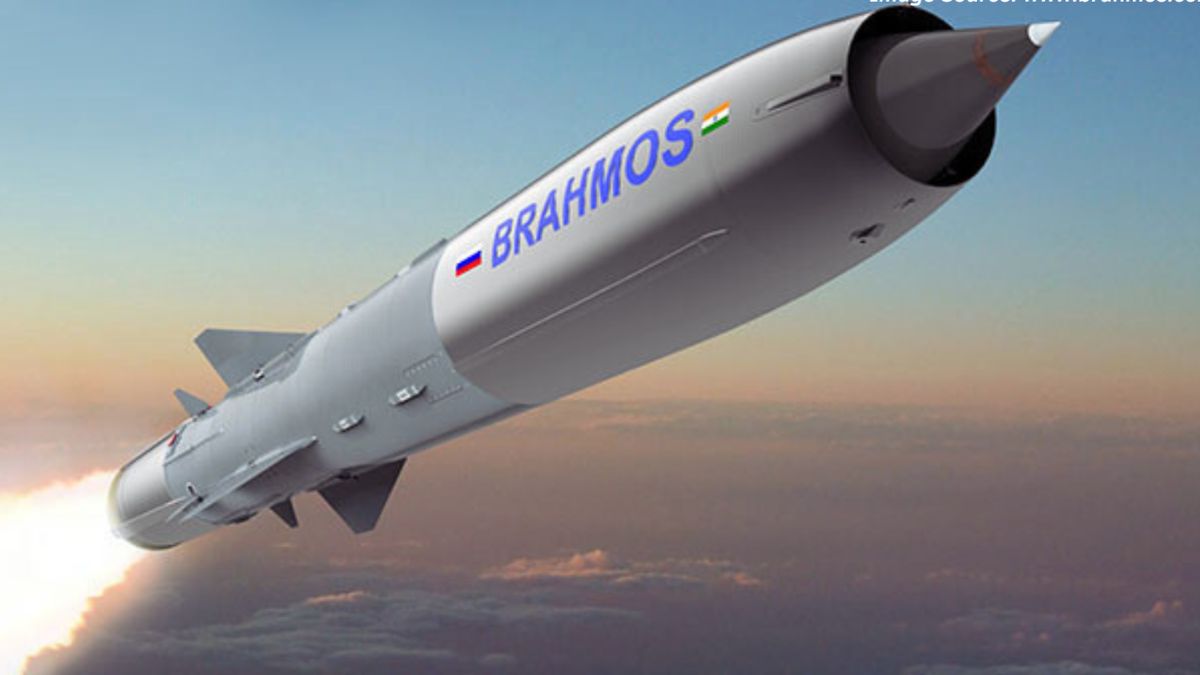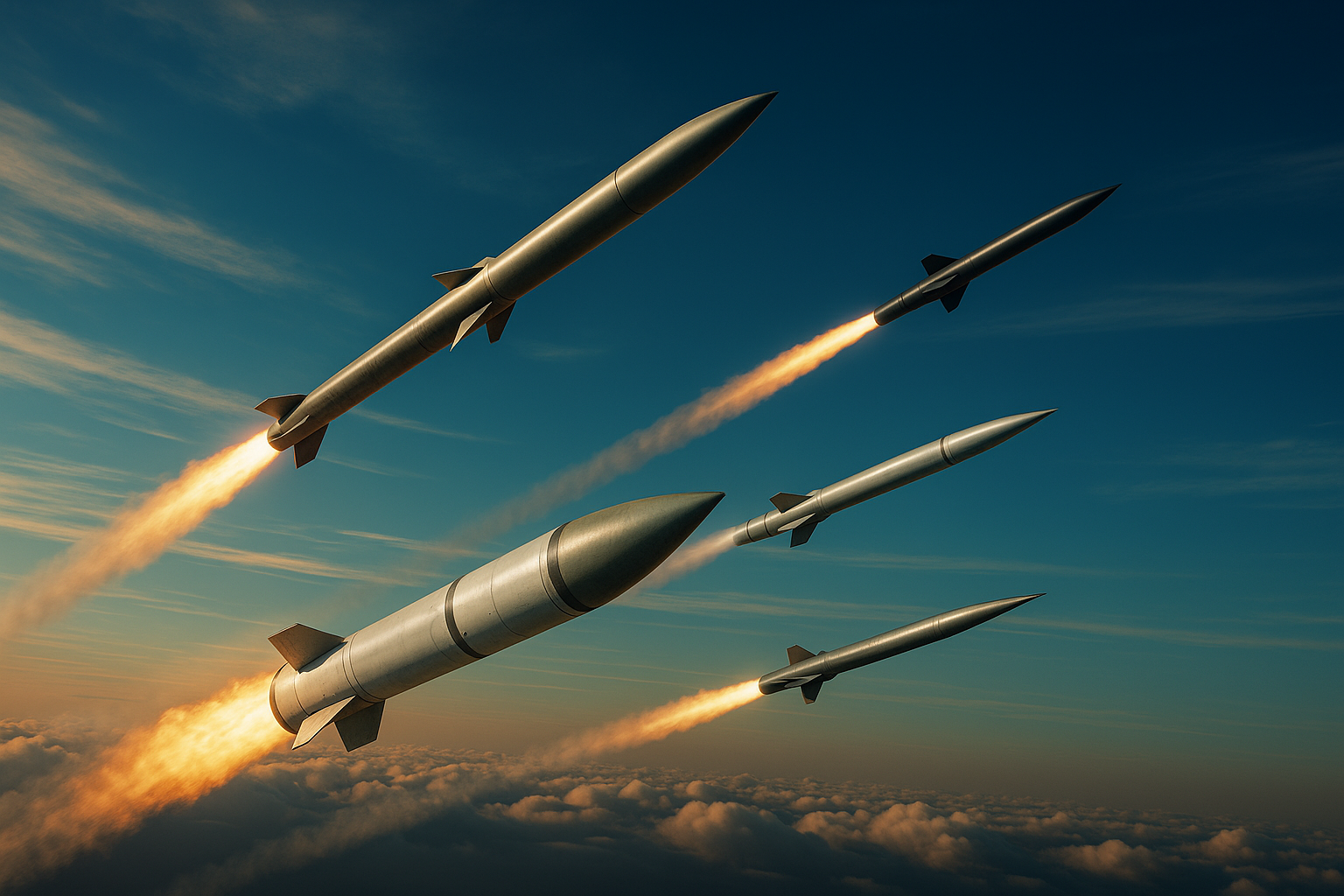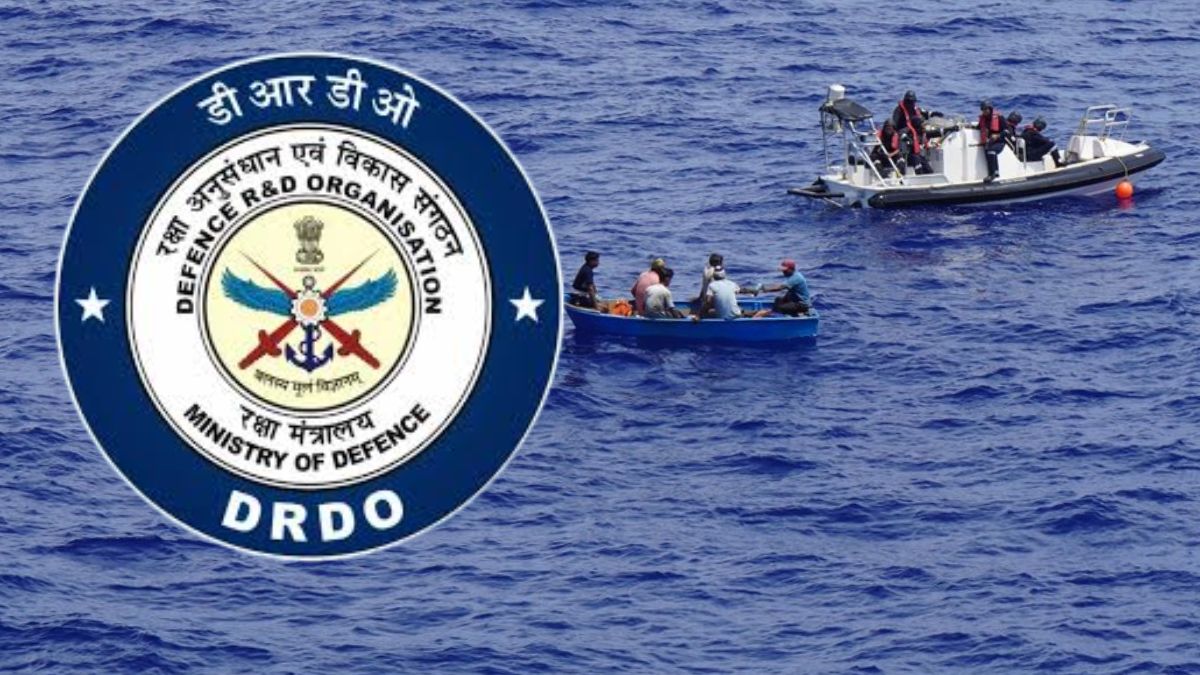Kim Jong Un Watches As North Korea Test-fires Two “Improved” Air Defence Missiles Amid Border Tensions

North Korean leader Kim Jong Un himself supervised the test of the missile. Image courtesy: RNA
North Korea has announced the test-firing of two “improved” air defence missiles, with leader Kim Jong Un personally overseeing the launch. The tests, held on Saturday, were described by state media as demonstrating “superior combat capability” against a range of aerial targets, though no technical details or test location were disclosed.
The Korean Central News Agency (KCNA) said the missiles used “unique and special technology” and had proven effective for destroying various airborne threats. Kim reportedly assigned an “important task” to the defence science sector to complete before a forthcoming party meeting.
How do the tests tie into rising border tensions?
The launch coincided with a border incident in which South Korea said its troops fired warning shots at North Korean soldiers who briefly crossed the heavily fortified Demilitarised Zone (DMZ) earlier in the week. The UN Command estimated around 30 North Korean troops had crossed into the South.
North Korean state media denounced the incident as a “premeditated and deliberate provocation”. Army Lieutenant General Ko Jong Chol warned that it risked pushing the border situation “to the uncontrollable phase”.
What is the wider context of the tests?
The missile launches came as South Korea and the United States carried out extensive joint military drills, which Pyongyang has long condemned as invasion rehearsals. The timing underlines North Korea’s ongoing pattern of weapons testing in response to allied exercises.
South Korea’s new president, Lee Jae Myung, has pledged to improve ties with the North and build “military trust”. Pyongyang, however, has dismissed these overtures, saying it has no interest in engaging with Seoul.
The latest developments highlight the continued volatility of the Korean Peninsula, where past promises of dialogue remain overshadowed by military confrontation.







